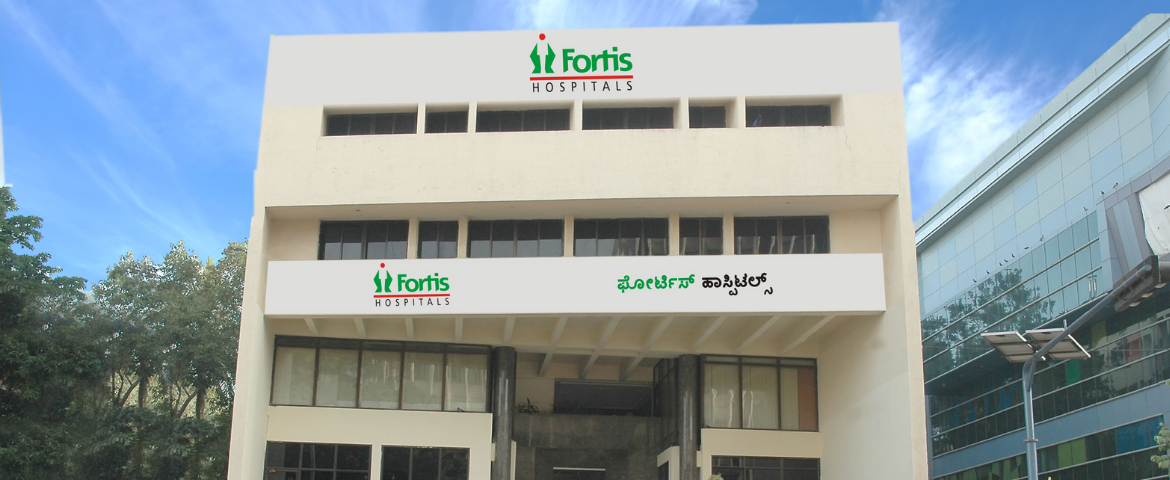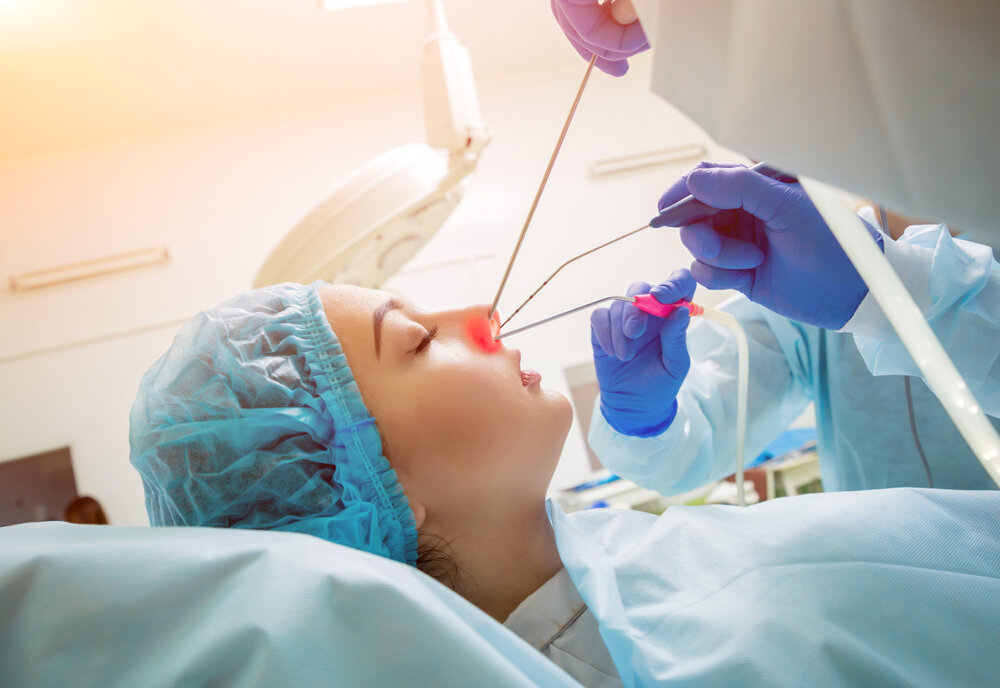Nasal Polyp Surgery cost in India
The cost of Nasal Polyp Surgery in India ranges
from USD 2000 to USD 5000
Procedure Description:
Nasal Polyp Surgery
Chronic sinusitis is difficult to treat, whether it has polyps or not. The treatment is determined by the underlying cause of the swelling and discomfort. The goal is to alleviate symptoms while also improving quality of life.
Treatments may include:
1- Steroids administered via the nose. These nasal sprays include fluticasone (Flonase Allergy Relief, Xhance), budesonide (Rhinocort), mometasone (Nasonex 24hr Allergy), triamcinolone (Nasacort Allergy 24HR), beclomethasone (Beconase AQ, Qnasl), and ciclesonide (Omnaris, Zetonna).
2- Steroids administered orally. Certain nasal polyps can obstruct nasal sprays. If so, using steroids in pill form, such as prednisone, may help. Steroids taken by oral may also be used to reduce polyps before surgery.
3. Biologic medications. Biologics function by targeting certain cells or proteins to reduce inflammation and edema. These could be used to treat persons who have recurring nasal polyps.
Surgery:
Endoscopic surgery is a viable option for removing nasal polyps and correcting sinus issues if medications are ineffective.
1- During endoscopic surgery, a surgeon inserts a small tube with a lit lens or tiny camera, known as an endoscope, via the nose into the sinuses. A surgeon then uses microscopic tools to remove polyps.
2- A surgeon can enlarge the sinus apertures. This can be done during an endoscopic procedure. Or there's a surgery known as balloon ostial dilation. This treatment does not include removing tissue from within the nose.
After surgery, a corticosteroid nasal spray may help prevent nasal polyps from returning. A saltwater treatment can help with healing after surgery.
Disease Overview:
Nasal polyps are painless growths inside the nose or hollow spaces within the face's bones, often known as sinuses. Nasal polyps are not cancerous.
Small nasal polyps may not cause symptoms. Larger growths or groups of nasal polyps may obstruct the nose. They can cause difficulty breathing, loss of smell, and infections. Nasal polyps can harm everyone. However, they are more common among young and middle-aged adults. Medicines can commonly reduce or remove nasal polyps. However, surgery may be required to remove them. Even after therapy, nasal polyps frequently return.
Disease Signs and Symptoms:
Nasal polyps have been related to irritation and swelling, commonly known as inflammation, of the nose and sinuses for more than 12 weeks. This is referred to as chronic sinusitis. However, it is possible to have chronic sinusitis without developing nasal polyps.
People with minor nasal polyps may be unaware they have them. However, having multiple polyps or a big polyp might cause a blockage in the nose.
Common symptoms of chronic sinusitis with nasal polyps are:
1- A runny, congested nose.
2- Mucus draining down the throat, commonly known as postnasal drip.
3. Being unable to smell.
4- Being unable to taste.
5. Facial pain or headache.
6- Dental pain.
7- A sensation of pressure on the forehead and face.
8- Snoring
Disease Causes:
Experts do not know what causes nasal polyps. They do not know why some people develop nasal polyps while others do not.
Infections, allergies, or any illness that produces chronic inflammation in the nose or sinuses might increase the likelihood of developing nasal polyps.
Nasal polyps are commonly associated with conditions such as asthma.
2. Aspirin sensitivity.
3. Cystic fibrosis.
4. Dental infections.
5- Lack of vitamin D.
6- Having a family history of nasal polyps may enhance the risk.
Country wise cost comparison for Nasal Polyp Surgery:
| Country | Cost |
|---|---|
| India | $2520 |
| United Arab Emirates | $3048 |
Treatment and Cost
10
Total Days
In Country
- 1 Day in Hospital
- 2 No. Travelers
- 9 Days Outside Hospital
Treatment cost starts from
$2800
Popular Hospital & Clinic
Featured Hospital
0 Hospitals
Related Packages
More Related Information
Some of the top rated hospitals are:
- United Arab Emirates
- Burjeel Hospital, Abu Dhabi
- New Hope IVF Gynaecology & Fertility Hospital, Sharjah
- Iranian Hospital, Dubai
- Kings College Hospital Dubai
- Zulekha Hospital Sharjah
- Burjeel Hospital for Advanced Surgery Dubai
- Burjeel Medical City, Abu Dhabi
- NMC Royal Hospital, Khalifa City, Abu Dhabi
- NMC Royal Hospital Sharjah
- AL NOOR HOSPITAL, Abu Dhabi
- Al Zahra hospital, Dubai
- NMC Specialty Hospital, Al Nahda, Dubai
- United Kingdom
- Cancer Centre London
- The Highgate Hospital
- The Holly Hospital
- The Parkside Hospital
- Circle Reading Hospital
- Shirley Oaks Hospital
- St Edmunds Hospital
- The London Clinic
- Woodlands Hospital
- The Christie NHS Foundation Trust
- Royal Marsden Hospital
- Queen Elizabeth Hospital Birmingham
- London Bridge Hospital, HCA Healthcare
- Saudi Arabia
- Italy




